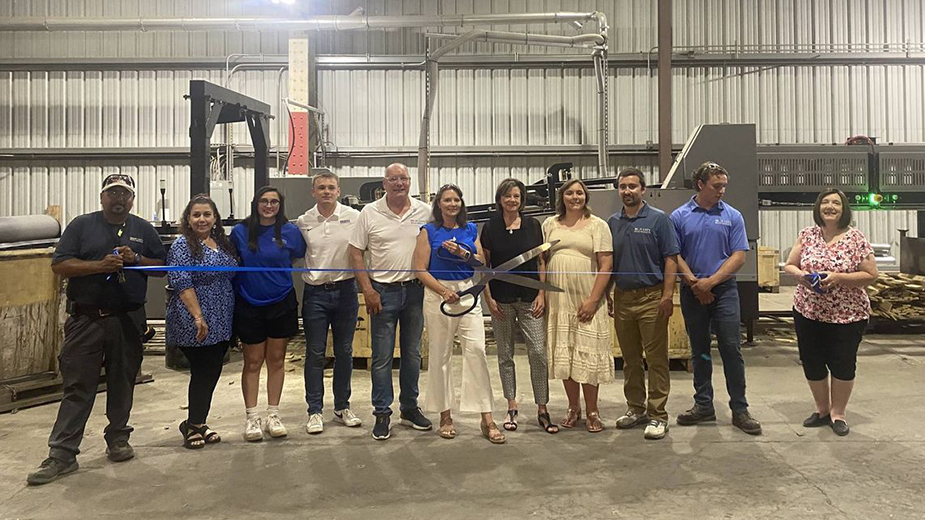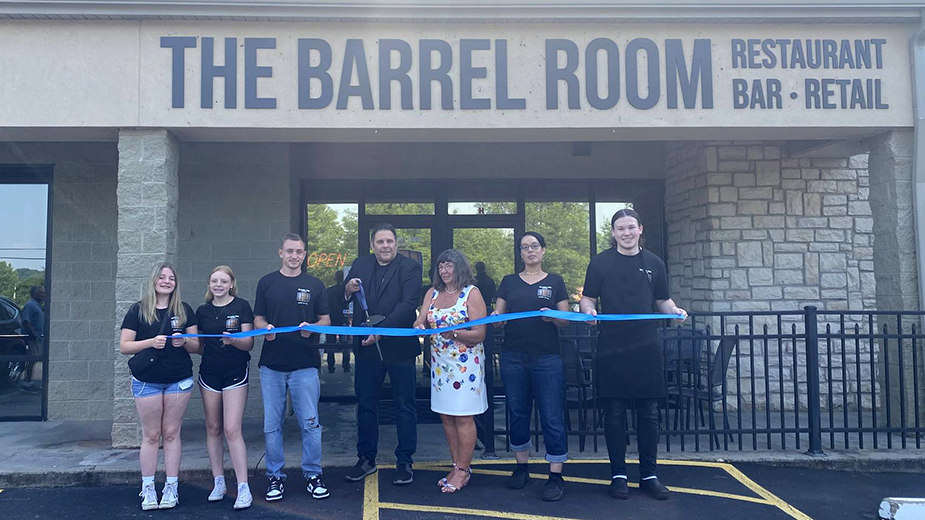Former Sheet & Tube Execs Recall the Best of Times
CANFIELD, Ohio – Something more valuable – much more valuable – than steel was cast during the nearly 80 years The Youngstown Sheet & Tube Co. was in business.
Aside from the white-hot molten metal that poured freely from its blast furnaces, long-standing friendships among officers, managers and sales executives were forged, an enduring bond that has long outlasted the company many of them loved.
“Sheet & Tube was the Mahoning Valley,” reflects Louis DeSimone, a former sales executive who each year organizes an annual Christmas gathering of former Sheet & Tube managers. “There was a love for the company. We really enjoyed working for them.”
More than 65 retired managers from Sheet & Tube and their spouses gathered Dec. 11 at Tippecanoe Country Club to enjoy one another’s company, catch up with old friends, swap stories of the great steelmaking days, and to pay their respects to their fellows who have died.
It’s an annual tradition that goes back nearly four decades, DeSimone says, after he and five others lost their jobs in the wake of Sheet & Tube’s merger with Jones & Laughlin Steel Corp. in 1978. “The new company didn’t need duplication in sales, so we were without jobs,” he recalls.
These six newly unemployed salesmen decided to meet for lunch to discuss their options. “We had such a good time, we decided to do it the next year,” DeSimone says. “The following year, we had 10 or 12, and the year after that even more.”
At one point, the annual luncheon drew 254 former managers, DeSimone says.
“After 37 years, there’s about 60 of us that get together annually to celebrate Christmas and the camaraderie we have,” he says. “We were all co-workers at one time and we all had a great time working for Youngstown Sheet & Tube.”
DeSimone was one of the younger sales executives at the company – he was hired in 1970 just out of college — and time has thinned the ranks of former managers. Still, they make it a point to attend each year to reminisce, renew old ties and pay tribute to a storied company.
The Sheet & Tube name and reputation made for an easy sell during the 1970s, DeSimone says. “Sheet & Tube had a good quality name in the industry for good quality products,” he reflects. “You could walk into any company unannounced and they’d make sure you were comfortable and all of your needs were taken care of. They knew you were a quality steel rep with a quality steel company. It was fun.”
Sheet & Tube exemplified the industrial might of the Mahoning Valley during the first half of the 20th century. The Campbell Works were constructed in 1901, and in 1923, the company purchased the Brier Hill Iron & Coal Works — then owned by the Tod family — which laid the foundation for Sheet & Tube’s expansion in Youngstown.
In 1969, the Lykes Corp., a Louisiana-based shipping company, acquired Sheet & Tube. This did not sit well with many in Sheet & Tube’s management.
“I left when Lykes took them over,” says William Farragher, who started his career at Sheet & Tube in the mid 1950s. “I met with the CEO in New Orleans and he told me I could keep my job.”
However, one condition was that Farragher was to report to the CEO’s son-in-law. “Does he know anything about steel?” Farragher recalls asking the new CEO. “No,” he replied. “Does he know anything about marketing?” Again, the executive said no.
“I came home and told my wife that I was leaving the company,” Farragher says. When Farragher left, most of the marketing department followed.
Then in 1977, Sheet & Tube all but closed its Campbell Works, affecting 5,000 workers. Two years later, the Brier Hill plant was shuttered.
“When Sheet & Tube went down, we lost about 5,000 or 6,000 employees,” DeSimone says. But the ramifications went far beyond the plant gates. “For every manufacturing employee that was hired, there were four or five residual jobs. So, it affected about 25,000 jobs in the area.”
No one could have foreseen this during the late 1950s and early 1960s, Farragher says. “We were making money. We were growing. We were looking at new products and our CEO, Al Glossbrenner, was updating the mills.”
The first sign of trouble was the sale to Lykes, Farragher says. The Tod family, which owned about 40% of Sheet & Tube at the time, opposed the merger but was outflanked by the other shareholders, who owned a majority of the shares outstanding.
David Tod II, whose ancestors helped build the Valley’s steel and mining industries, served as the keynote speaker for the luncheon Dec. 11. He provided a rich timeline of the Tod family and their history from the Connecticut Land Co. in the early 19th century to its interests in Sheet & Tube.
“My family was very, very opposed to the deal,” he recalls, “but there was no alternative.”
To underscore the importance of the company not only in the Valley, but in the national economy, Tod cited a letter written in 1968 to his uncle, Fred Tod, then a director of Sheet & Tube 17 years. The letter requested Tod to acquiesce to the sale because it would help stabilize the price of steel.
“The nation’s interest stands above politics, above partisanship, and above everybody else’s special needs or opportunities for the short-term gains,” the letter reads. “Your help is needed to protect that interest. On behalf of the American people, I ask that you give this matter the most serious and thoughtful evaluation. Lyndon B. Johnson.”
Fred Tod still refused to approve any merger, explaining that he objected to turning the company over to persons “who are strangers to me, and as far as I know, strangers to the steel industry. This deal makes no economic sense.” The day before the shareholders vote, Fred Tod resigned.
Today, Youngstown is reinventing itself, David Tod told the gathering. Even the former Brier Hill Works is vibrant once more with Vallourec Star’s $1 billion pipe mill built on the former Sheet & Tube property.
“Sheet & Tube was a fascinating company to work for,” recollects Walter Ibele, a retired superintendent and general manager for tubular operations. “My specialty was running the high-strength tube operations.”
Like Vallourec today, Sheet & Tube’s Brier Hill plant manufactured pipe and tube casings for the oil and gas industry. “We heat-treated the pipe that drilled the deepest well in the world at the time back in the 1950s in Louisiana,” Ibele says. “We had all kinds of high-strength pipe around the world.”
Ibele, who joined Sheet & Tube in the mid 1950s, says the steel business rode out slumps similar to what is occurring now in the oil and gas industry. “It’ll come back,” he says. “I’ve seen this before.”
DeSimone finds it heartening each year around the holidays to get together with old friends and share in what was great about Youngstown Sheet & Tube Co.
“A lot of us moved on,” he says. DeSimone found a position at Sharon Steel Corp., while others who stayed with the company or remained in the business relocated to other parts of the country.
That makes gatherings such as these even more special, DeSimone says. “It’s a thrill to do this every year. All of us look forward to it.”
Pictured: Walter Ibele and Louis DeSimone share memories at the annual gathering of former Sheet & Tube executives.
Copyright 2024 The Business Journal, Youngstown, Ohio.



